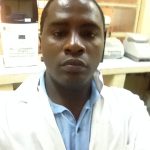
EDET AMOS
About Candidate
Edet Iwebaffa amos is dexterous in designing and implementing experimental procedures in biological science, plant science such as plant pathology, seed mycology, plant genetic screening for resistance, botanical and inorganic control of vector of plant pathogenic fungi and plant biotechnology. skilled in a wide variety of experimental techniques, including the use of biotechnological and bioinformatics tools. His current work is focused on fungi detection and diagnosis, host- fungi-virus interaction and, molecular approaches with this objectives in mind which includes Lifelong Learning: To Engage in continuous learning by staying updated on the latest research, technologies, and advancements in the field. This can involve reading scientific journals, attending conferences, taking online courses, or pursuing advanced degrees or certifications.
Professional Associations and Networks: Join relevant professional associations or networks that provide access to resources, workshops, and networking opportunities. Engaging with peers and experts in the field can facilitate knowledge sharing and skill development.
Mentorship and Collaboration: Seek out mentors or senior professionals who can provide guidance, advice, and opportunities for skill development. Collaborating with colleagues on projects or research can also foster learning and skill enhancement through shared expertise.
Specialized Training: Identify specific areas of expertise or skills that require improvement and seek out specialized training programs or workshops to acquire or enhance those skills. This could involve attending workshops on new laboratory techniques, data analysis methods, or other relevant topics.
Cross-Functional Experience: Look for opportunities to gain experience in different areas within the field. This could involve volunteering for interdisciplinary projects, taking on diverse responsibilities, or seeking assignments that require collaboration with professionals from other disciplines.
Personal Projects and Research: Undertake personal projects or research initiatives that allow for hands-on application and exploration of new techniques or concepts. This can help deepen understanding and develop practical skills in a self-directed manner.
Technology Proficiency: Stay updated with the latest technological tools and software relevant to the field. Familiarize yourself with industry-standard software, data analysis tools, and laboratory equipment to ensure proficiency in handling modern research methodologies.
Education
Masters of Agriculture in Crop Protection (Pathology option)
Plant science, Plant biotechnology, plant pathology, seed mycology, plant genetic screening for resistance, botanical and inorganic control of vector of plant pathogenic fungi. skilled in a wide variety of experimental techniques, including the use of biotechnological and bioinformatics, fungi detection and diagnosis, host- fungi-virus interaction and, molecular approaches
Postgraduate Diploma in Education
Science Education (Biological science)
B. Tech. Microbiology
To investigate the structure, classification, metabolism, genetics, and interactions of microorganisms These include culturing microorganisms in the laboratory, using microscopes to observe their morphology and structure, and employing molecular biology techniques to analyze their genetic material and to investigates the roles of microorganisms in biogeochemical cycles, pollution remediation, and the maintenance of ecosystem balance, biotechnology and bioengineering for the production of enzymes, biofuels, and other bioproducts
Senior secondary certificate
secondary education
Work & Experience
Lecturer
Teaching core biological subjects

